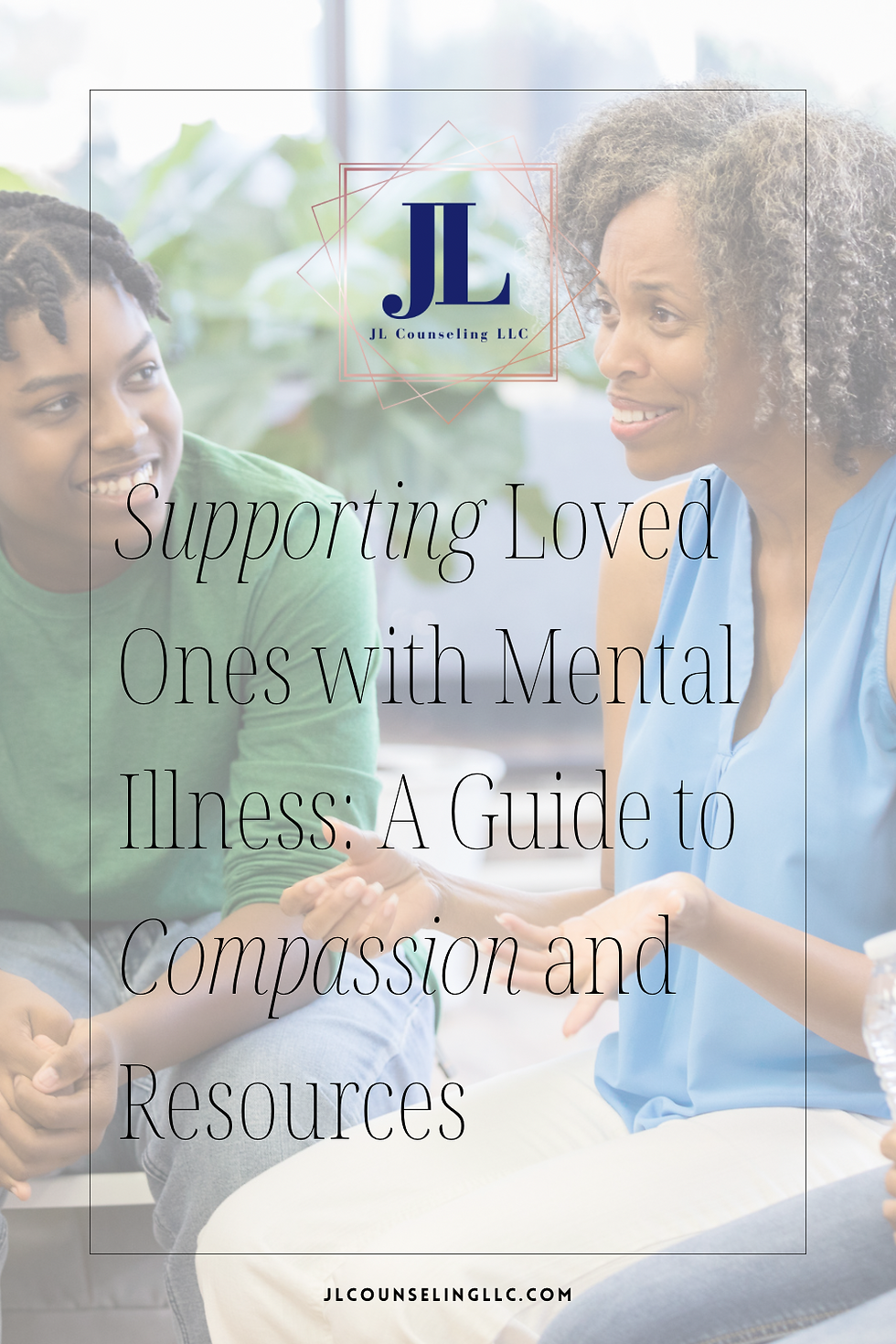
Mental illness affects millions of people worldwide, and many of us have loved ones who struggle with these challenges. Being supportive and understanding can make a significant difference in their journey to recovery and well-being. In this blog post, we'll explore practical ways to support your loved ones with mental illnesses and provide resources to help you navigate this path together.
1. Educate Yourself
Understanding mental illnesses is the first step to being supportive. Take the time to educate yourself about different mental health conditions, symptoms, and available treatments. Knowledge is empowering and will help you be more empathetic and informed when discussing your loved one's struggles.
Resources:
- National Alliance on Mental Illness (NAMI): https://www.nami.org/
- Mental Health America: https://www.mhanational.org/
- Centers for Disease Control and Prevention (CDC): https://www.cdc.gov/mentalhealth/
2. Listen and Communicate
Communication is key in any relationship, especially when supporting someone with a mental illness. Create a safe and non-judgmental space where your loved one feels comfortable talking about their experiences and feelings. Encourage open dialogue, and be an active, empathetic listener.
3. Offer Your Support
Express your willingness to be there for your loved one. Offer your assistance without judgment, whether it's accompanying them to therapy, helping with daily tasks, or simply being a shoulder to lean on. Let them know you're in this together.
4. Avoid Stigmatizing Language
Words have a powerful impact. Avoid using stigmatizing language when talking about mental illness. Be mindful of your choice of words, and encourage others to do the same. This promotes a more understanding and compassionate environment.
5. Encourage Professional Help
While your support is invaluable, it's essential to encourage your loved one to seek professional help. Mental health professionals are trained to provide the necessary care and guidance for those with mental illnesses. Offer assistance in finding a therapist or psychiatrist if needed.
Resources:
- Psychology Today's Find a Therapist: https://www.psychologytoday.com/us/therapists
- SAMHSA's National Helpline: 1-800-662-HELP (4357)
6. Self-Care
Supporting a loved one with a mental illness can be emotionally taxing. Don't forget to take care of yourself. Ensure you have a support network, engage in self-care, and consider joining a support group for caregivers. You need to be in good mental health to provide effective support.
Resources:
- Caregiver Action Network: https://caregiveraction.org/
- NAMI Family Support Group: https://www.nami.org/Support-Education/Support-Groups/Family-Support-Group
7. Be Patient
Recovery from mental illness is not a linear process. It can be filled with ups and downs. Be patient and understanding with your loved one, and avoid pressuring them. Celebrate their small victories, and offer reassurance during challenging times.
8. Respect Boundaries
Respecting your loved one's boundaries is crucial. Mental illness can be isolating, and sometimes they might need space. Always check in and ask if they would like your company or assistance before providing it.
9. Stay Informed about Medications
If your loved one is prescribed medications, familiarize yourself with the prescribed drugs, their side effects, and any potential interactions. This knowledge will help you support them through the treatment process.
Resources:
- MedlinePlus: https://medlineplus.gov/druginformation.html
- WebMD's Medication and Pill Identifier: https://www.webmd.com/drugs/search.aspx
Supporting loved ones with mental illnesses is a journey that requires compassion, patience, and dedication. By educating yourself, being a good listener, offering assistance, and encouraging professional help, you can make a positive impact on their lives. Remember, you're not alone in this; there are numerous resources available to help both you and your loved one on this challenging but ultimately rewarding path to recovery.


